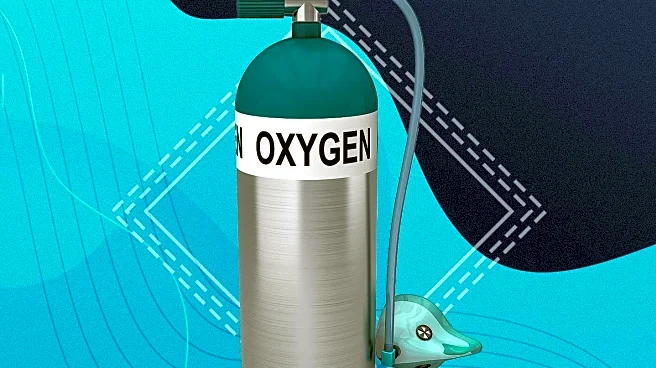What's Happening?
A novel method of delivering oxygen rectally, known as 'butt breathing,' has shown potential in helping patients with lung diseases. Initially demonstrated by Japanese researchers in 2021, the technique involves using an enema-like process to deliver super-oxygenated
liquid to the large intestine, where it is absorbed into the bloodstream. Recent clinical trials have focused on the safety of this method, with encouraging results. The study, published in the journal Med, involved 27 healthy men who tolerated the procedure well, paving the way for further research into its effectiveness.
Why It's Important?
This technique could provide a new way to support patients with blocked airways or limited lung function due to injury or disease. If proven effective, it could offer a low-tech solution for respiratory failure, potentially reducing the need for invasive procedures. The research highlights the innovative approaches being explored in medical science to address complex health challenges. Successful implementation could improve patient outcomes and expand treatment options for respiratory conditions.
What's Next?
Researchers plan to conduct further trials to evaluate the effectiveness of the rectal oxygen delivery method in improving blood oxygen levels. Future studies will focus on determining the optimal volume and duration of oxygenated liquid needed for therapeutic benefits. The technique's potential application in emergency medicine and critical care settings will be explored, with ongoing assessments of its safety and efficacy.
Beyond the Headlines
The development of this technique raises questions about the adaptability of medical practices and the acceptance of unconventional methods in healthcare. Ethical considerations regarding patient consent and the use of experimental treatments will be important as research progresses. The study also reflects broader trends in medical innovation, where traditional boundaries are being challenged to improve patient care.














